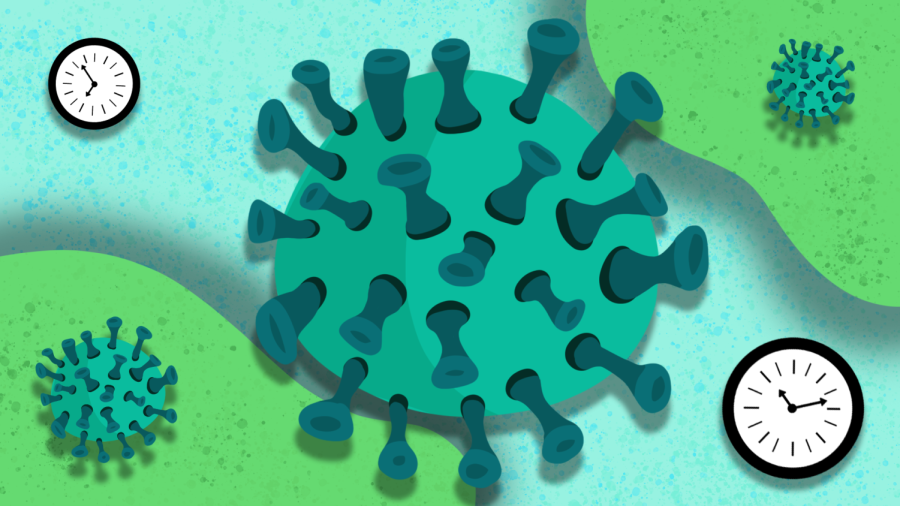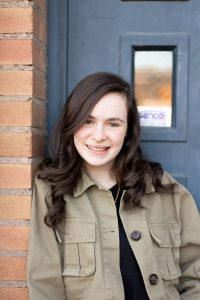U’s Long COVID Clinic: Two Years and 1800 Patients In
(Design by Madelyn Foulger | The Daily Utah Chronicle)
June 28, 2023
When Lisa O’Brien first contracted COVID-19 in March 2020, she had no idea the lasting effects it would have on her health. At the time, the nation was shutting down, and national cases of COVID were rising quickly. But even after she tested negative, the symptoms did not go away. She would wake up in the middle of the night with a pounding heartbeat and severe chest pain.
She wanted to see if there were others dealing with the same thing she was.
“I decided that I was going to start a Facebook group and try to find as many people as I could so that I can show … the University of Utah or other people in charge that we had an issue and we were going to need more resources,” she said.
O’Brien said that most people were talking about the survival rates, but not what happened to the body upon survival. The newly formed Facebook page was able to be a connecting medium for those with long COVID.
People who experience long COVID have symptoms associated with the virus long-term and have an overall health impact. It affects 1 in 5 US adults that contract COVID-19 — roughly 20 million people.
At about the same time that O’Brien was finding community on Facebook, immunologist Jeanette Brown was looking to start a clinic at the U to study the lasting effects of the virus on patients.
The clinic looks at people of all ages, but according to Brown, the average age is about 47. Since its beginning in July 2021, about 1800 patients have taken part in the study to address health problems.
“These problems can include respiratory issues, cardiovascular problems and neurological issues,” Brown said.
Brown currently serves as the medical director for the long COVID clinic.
Brown and O’Brien have worked together to interview and present the findings, and are a part of the Long Clinic Workgroup put together by the Utah Department of Health.
A recent long COVID study examined 9,764 adults, most of whom had COVID-19 at one point, and found the most common symptoms that separated those with long COVID and those without.
The symptoms are “post-exertional malaise, fatigue, brain fog, dizziness, gastrointestinal symptoms, heart palpitations, issues with sexual desire or capacity, loss of smell or taste, thirst, chronic cough, chest pain, and abnormal movements.”
The study then made a scoring system by assigning points to the 12 symptoms and gave scores based on the combination of symptoms together.
“With these scores in hand, researchers identified a meaningful threshold for identifying participants with long COVID,” said a University of Utah press release about the study.
With this new information, the clinics are ramping up to better help and treat those who have lingering symptoms.
O’Brien was never a patient of the clinic but worked closely with Dr. Brown as the clinic was developing in 2021. She polled her fellow long COVID group members to gather patient input for what needed to be included in the clinic. O’Brien’s Utah COVID Long-Hauler Facebook page now has over 4.4 thousand members.
Brown’s next goal is to better serve people living in rural areas by providing telehealth rehab.
“The goal is to provide them with good care because often they kind of get left out because they can’t come up,” she said. “It’s totally hard for them to drive.”
University of Utah Health is appealing to the Utah State Legislature to gain funding to better support those in rural communities who need that care. A statement from the new budget proposal infographic said, “With $600,000, we propose to increase care capacity for uninsured or underinsured patients, and improve access for rural communities and areas in Utah with low health improvement index scores.”









